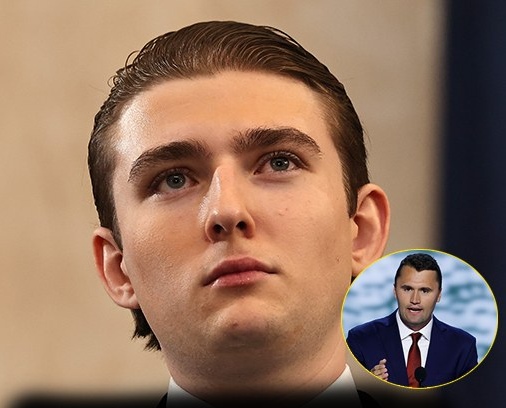Donald Trump has shared that his youngest son, Barron, has been deeply affected by the assassination of conservative activist Charlie Kirk. In an interview days after the tragic shooting, Trump revealed that Barron was “very hurt” by the news, highlighting not only Kirk’s political influence but also the personal connections he built with families across America—including their own.
Charlie Kirk, founder of Turning Point USA, was shot on Wednesday during a live event at Utah Valley University. The attack, sudden and shocking, occurred just moments after Kirk had answered a question from the audience about the wave of mass shootings in the United States—a bitter irony that has left a lasting impression on attendees.
Kirk’s events typically attracted large, energetic crowds of young conservatives, meant to spark conversation and inspire activism. That evening, however, what was intended as another lively discussion turned into chaos. Gunfire erupted, scattering the audience and plunging the venue into panic. Because the events were frequently recorded, multiple videos quickly circulated online, spreading shock, grief, and anger nationwide. Political leaders from both parties swiftly condemned the violence, calling for accountability.
The FBI launched an immediate manhunt. Security footage later showed a lone figure climbing down from a nearby rooftop, rifle in hand, before fleeing across a parking lot. Investigators recovered a weapon and ammunition in the nearby woods, suggesting careful planning. By Friday, Trump announced on Fox News that 22-year-old Tyler Robinson of Utah had been taken into custody. While the capture brought some relief, the weight of the tragedy lingered.
For Trump, the incident struck a personal chord. He described how Barron had admired Kirk and had once requested a meeting with him. “Barron’s a very good student, and he came to me one day saying he wanted to meet Charlie Kirk,” Trump said. “So I arranged a lunch. They spent time together, and Barron came back saying, ‘That guy’s great, Dad.’ Charlie had a kind of magic over kids—Black, white, it didn’t matter. Barron was very hurt when he saw this happen.”
This glimpse into Barron’s experience emphasizes Kirk’s unique ability to reach beyond politics. At just 31, Kirk had established himself not only as an activist but also as a mentor to countless young Americans. Through Turning Point USA, he connected with schools, campuses, and communities, energizing a generation around conservative principles. To supporters, he was a dynamic figure; to critics, a provocative voice—but to Barron, he was someone to admire and learn from.
The human dimension of the tragedy—how it touched young people personally—underscored the loss. Barron’s grief is a reminder that behind every headline is a ripple of sorrow affecting families and friendships. Kirk’s death was not merely political; it ended the life of a man who had built real bonds across generational and ideological divides.
The shooting also intensified national conversations about political violence. That Kirk was killed while addressing mass shootings highlighted the risks public figures face in an era of growing polarization. Social media amplified the impact, spreading news, speculation, and debates about the perpetrator’s motives.
Trump’s reflections, however, brought the focus back to the personal. He noted Kirk’s extraordinary ability to engage young people, including Barron. “Charlie could walk into a room and captivate students in a way few can. He made them feel seen and heard, and that mattered. Barron felt that.”
It is rare for Trump to discuss Barron publicly, making these comments all the more notable. They served as both a tribute to Kirk and acknowledgment of the emotional toll his death has taken. The loss is felt not only politically but personally, cutting deeply into the lives of those who knew him and admired him.
Kirk’s assassination leaves a void in the conservative movement and in the hearts of those he influenced personally. His legacy is now inseparably tied to the sudden and violent manner of his death. For Barron, the tragedy was immediate and tangible: the loss of someone he had met, someone who had inspired him during a formative time.
As the nation continues to process the events at Utah Valley University, Barron’s grief highlights the broader human cost of political violence. Bonds are severed, silences remain, and those who mourn carry the weight long after headlines fade. For Trump, Barron, and thousands of young people influenced by Kirk, the assassination is not just a political event—it is a personal wound, a loss made painfully real through the grief of a teenage boy who once admired the man now gone.
